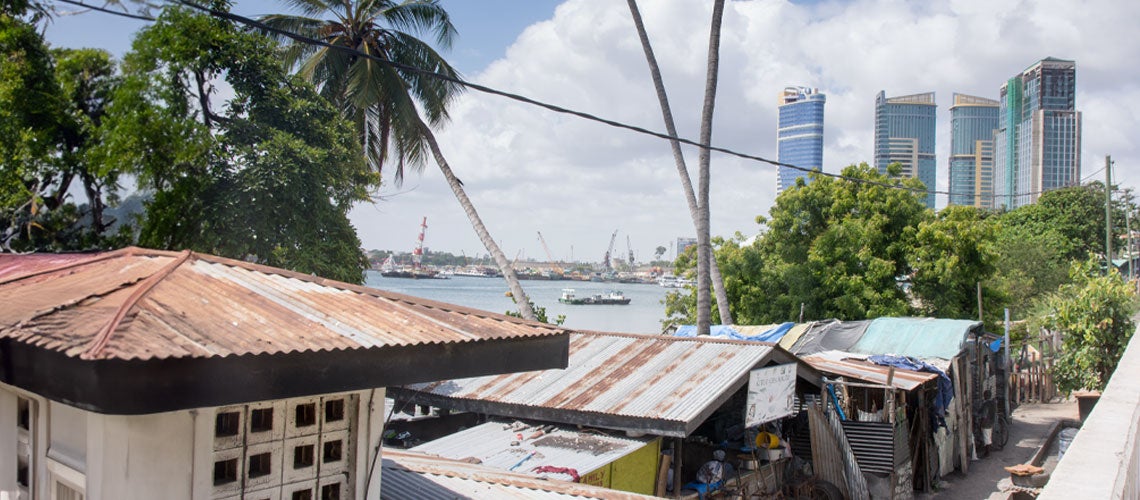 Dar es Salaam, Tanzania, December 15th, 2017.
Dar es Salaam, Tanzania, December 15th, 2017.
Gender-based violence (GBV) is a pervasive global health crisis; one in three women worldwide experience GBV in their lifetime – and key vulnerable groups, such as female sex workers, are disproportionately at risk. Improving a woman’s financial autonomy has been hypothesized to mitigate GBV by addressing poverty and economic insecurity, which can increase dependency on violent partners or clients. This has led researchers to investigate the effects of economic interventions on violence, and some have found that providing large sums of money to women or households via cash transfers or social safety net programs can reduce intimate partner violence in certain contexts.
A key question that has emerged is whether other economic incentives, including lotteries with low-probability and high-rewards, have similar impacts. This question was explored through the lens of RESPECT II, a randomized controlled trial conducted with more than 2,000 female sex workers in Dar es Salaam, Tanzania. The trial randomized women into a lottery group, where they had the opportunity to win $50 if they were randomly chosen for sexually transmitted disease (STI) testing and received negative test results, or to a control group. While the trial’s main objective was to test whether this lottery mechanism could improve HIV prevention, we also aimed to see whether the opportunity to receive a large cash award in the lottery could reduce gender-based risks (via avoiding risky sexual partners/clients who were more likely to perpetrate violence).
What did the study find?
- More than 40% of participants reported experiencing gender-based violence in the three months prior to the trial.
- The common form of gender-based violence reported was physical or sexual violence by non-intimate partners (violence perpetrated by clients or other sexual partners) – 35% overall.
- No effects of the lottery were observed on gender-based violence; at the end of the trial, women in the lottery group and the control group reported similar experiences of violence (no significant differences between groups at endline).
What are the implications for future research and practice?
While cash transfers and other economic interventions have been widely studied, this is the first exploratory study to investigate the effects of a lottery intervention on GBV.
The findings from RESPECT II underscore that female sex workers experience an alarmingly high risk of violence in their everyday lives, particularly with clients. The opportunity to win a large monetary award through a lottery did not reduce violence in this context, and thus it is possible that lotteries are not able to obtain the positive effects achieved through other approaches such as cash transfers and social safety net programs, which are a more reliable source of supplemental income and provide a higher level of financial security that may be needed for women to avoid or leave violent partners.
Additional research is needed to further examine how different economic interventions affect violence against women – and how increasing financial agency can address this important human rights issue for women worldwide . Such research efforts are part of the commitment of the World Bank and the wider global community to pursuing the prevention of GBV.





Join the Conversation